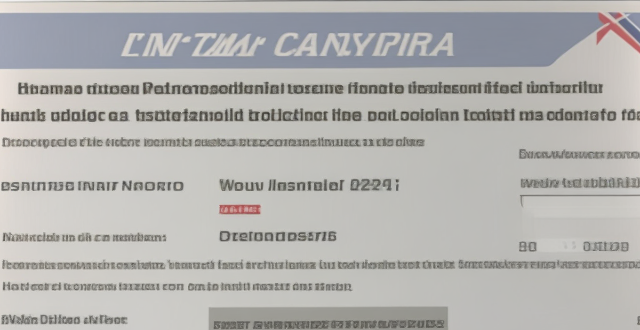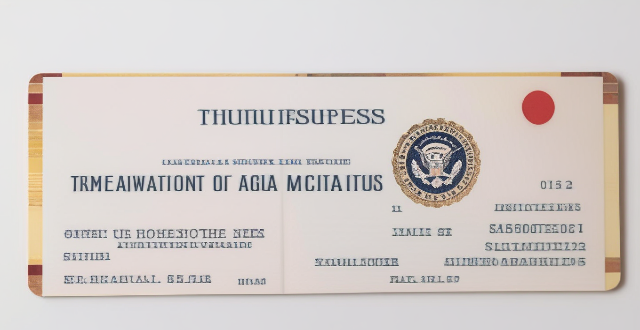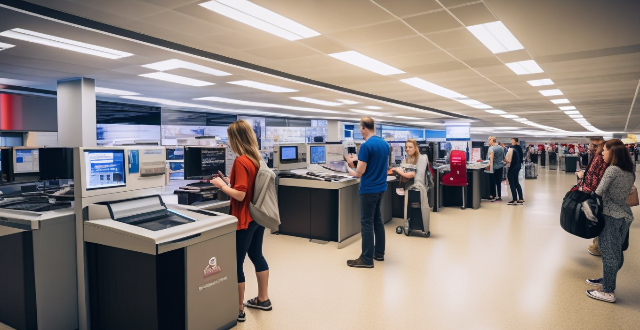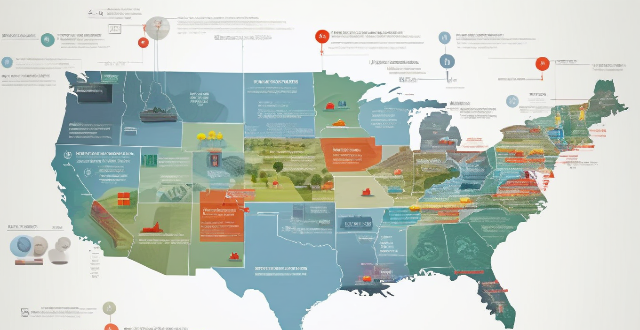Country Visa

Do I need a visa if I'm only staying in the country for a few hours ?
Do I Need a Visa If I'm Only Staying in the Country for a Few Hours? Traveling to a foreign country often involves understanding the visa requirements, even if your stay is only for a few hours. The need for a visa depends on factors such as the purpose of your visit, the duration of your stay, and the specific regulations of the country you are visiting. Some countries offer visa exemptions for brief transit stays, especially if you remain in the airport and do not enter the country's territory. For business meetings or other activities that require leaving the airport, a visa may be necessary regardless of the duration. Countries often have specific rules for visits shorter than 24 hours or even up to 90 days, which may affect visa requirements. Generally, if your stay exceeds the short-term visit limit, a visa will be required. Some countries have agreements that allow citizens of certain nations to enter without a visa for short periods. For layovers or connecting flights, some countries issue transit visas that allow limited time within the country or its airports. To determine visa requirements, research the country's visa policy, consult with the airline, check travel advisories, and contact the embassy directly if unsure. Whether you need a visa for a short stay largely depends on the country's immigration policies and the purpose of your visit. It is essential to research and understand these requirements before traveling to avoid any complications at border control.

Can I extend my tourist visa once I arrive in the country ?
This article discusses whether it is possible to extend a tourist visa once arriving in a foreign country. It outlines eligibility criteria, steps to follow for extending the visa, and things to keep in mind while considering an extension. The main points include checking purpose of visit, duration of stay, financial capacity, health and safety; gathering required documents; contacting immigration authorities; attending interview (if required); paying fees (if applicable); waiting for approval; obtaining extended visa; timely application; adhering to laws and regulations; seeking professional help if needed.

What are the requirements for a tourist visa ?
The article provides a comprehensive list of general requirements for obtaining a tourist visa, which include having a valid passport, completing a visa application form, providing recent photographs, presenting a detailed travel itinerary, demonstrating financial stability, possessing health insurance, submitting an invitation letter if applicable, explaining the purpose of visit, and possibly offering a police clearance certificate. It emphasizes the importance of checking with the embassy or consulate of the destination country for specific instructions due to variations in requirements among different nations.

What is the validity period of a tourist visa ?
The validity period of a tourist visa varies depending on the country's immigration policies and the type of visa issued. There are two main types of tourist visas: single-entry and multiple-entry. Short-term tourist visas typically have a validity period of up to 90 days, while long-term tourist visas have a validity period of more than 90 days. Several factors can affect the validity period of a tourist visa, including the applicant's nationality, purpose of visit, financial status, and immigration history. It is essential to check the specific requirements and conditions before applying for a tourist visa.

How long does it take to process a travel visa ?
The time it takes to process a travel visa can vary significantly depending on several factors, including the country you are applying for the visa, your nationality, the type of visa you are applying for, and how quickly you are able to submit the required documents and information. It is important to research the specific visa processing time for the country you are applying for the visa, as well as your nationality, the type of visa you are applying for, and how quickly you are able to submit the required documents and information. By taking these factors into account, you can better plan for your travel visa application process.

What documents do I need to provide for a tourist visa application ?
The text provides a list of essential documents required for a tourist visa application, including a passport with at least six months' validity and two blank visa pages, recent passport photographs meeting specific requirements, a completed visa application form, a detailed travel itinerary, proof of financial means, an invitation letter if applicable, travel insurance, and a cover letter explaining the purpose of the visit. The text emphasizes the importance of gathering these documents beforehand to make the application process smoother and increase the chances of success. It also notes that specific requirements may vary by country, so applicants should check the documentation needs and specifications for each item.

Is it necessary to have a return ticket for a tourist visa application ?
The text discusses the importance of a return ticket for a tourist visa application. It states that a return ticket is necessary to ensure the traveler has plans to return to their home country after the completion of their trip. Other documents required for a tourist visa application include a valid passport, hotel reservation, travel itinerary, financial evidence, invitation letter, travel insurance, application form, and photo. The return ticket is considered important as it shows the embassy or consulate that the traveler plans to return to their home country after their trip, reduces the chances of overstaying their visa period, assures the authorities of departure arrangements, and maintains the integrity of visa policies. If a traveler cannot provide a return ticket at the time of application, there is a high probability of visa rejection. However, an onward journey ticket can be provided as an alternative. Alternatives to a return ticket include one-way tickets, open-ended tickets, refundable tickets, and onward journey tickets. To ensure the availability of a return ticket, travelers should book in advance, choose flexible dates, opt for refundable tickets, and check with airlines about their policies. Not providing a return ticket can lead to visa rejection, blacklisting, impact future applications, and financial losses. Travel agents can assist in getting a return ticket or suggesting alternatives but may charge additional fees.

How much does it cost to obtain a tourist visa ?
This detailed guide outlines the cost implications and requirements for obtaining a tourist visa to the People's Republic of China as of July 2024, using the process in the United States as an example. The guide covers visa types, required documents, additional requirements, cost implications, and the application procedure. It also highlights recent simplifications in the document requirements and emphasizes the importance of meeting all specified requirements and being prepared for associated costs.

How can I check the status of my tourist visa application ?
Checking the status of your tourist visa application can be a nerve-wracking experience, especially when you're eagerly anticipating your travel plans. Here's a step-by-step guide to help you through the process: 1. Determine the type of visa you applied for, as different visas might have different checking procedures. 2. Locate the appropriate government website or portal dedicated to visa services where you can check the status of your application. 3. Have your application details ready, such as Application ID Number, Passport Number, and Date of Birth. 4. Enter the required details into the online system on the visa status portal. 5. Submit the form and retrieve the status of your visa application. 6. Interpret the status message, which could indicate that your application has been accepted, is under review, requires administrative processing, has been issued, or has been refused. 7. Follow up if necessary with the embassy or consulate for any delays or further action required. Additional tips include keeping track of timelines, being patient as visa processing times can vary, and staying informed about any events that might affect processing times. By following these steps, you should be able to effectively check the status of your tourist visa application and plan accordingly.

What happens if I don't declare all the cash I'm carrying when entering a country ?
The text provides a comprehensive overview of the potential penalties and inconveniences that may arise from not declaring cash at customs when entering a country. These include fines, seizure of funds, travel restrictions, administrative inconvenience, and loss of face. To avoid these consequences, it is recommended to be honest about the amount of cash carried, keep receipts, research regulations, and consult professionals if necessary.

Can I apply for a tourist visa online ?
Applying for a tourist visa online is convenient and efficient, with requirements including a valid passport and proof of funds. The process involves filling out an electronic form and uploading supporting documents. Payment is typically required through a secure gateway, and approval may require additional documentation or an interview. Processing times vary, so it's important to apply well in advance of travel.

What changes have been made to New Zealand's immigration policy recently ?
New Zealand's recent immigration policy changes aim to address labor shortage and promote economic growth by creating a new visa category, increasing residence visa allocation, simplifying the application process, offering greater flexibility for international students, and reducing processing times.

What is the correlation between immigration policies and entrepreneurship ?
Immigration policies significantly impact entrepreneurship by influencing talent access, regulatory environments, cultural diversity, and economic opportunities. Talent-friendly policies like Canada's Express Entry System and the U.S. H-1B Visa attract skilled immigrants, enhancing competitiveness. Supportive regulatory frameworks, such as Australia's Business Innovation and Investment Program and the UK's Tier 1 Entrepreneur Visa, simplify business establishment processes. Diversity-promoting policies, like New Zealand's Residence Programme and Germany's Blue Card EU, foster innovative solutions through varied perspectives. Economic opportunities arise from policies like Sweden's Startup Visa and Ireland's Startup Entrepreneur Programme, which create market gaps and support immigrant entrepreneurs. Governments should implement policies encouraging entrepreneurship among immigrants and local populations.

How does Japan manage its immigration with its strict policies ?
Japan's Immigration Management with Strict Policies Japan maintains strict immigration policies to protect its cultural identity and ensure the smooth integration of immigrants into society. These policies include visa requirements, a points-based system for evaluating foreign workers, a residence card system, employment regulations, and language requirements. Foreign nationals must obtain a visa unless exempt, and there are different types of visas depending on the purpose of visit. The points-based system assigns eligibility based on factors like age, education, experience, and language skills. Once in Japan, foreigners must register their residence within 90 days and carry a Residence Card at all times. Employers must comply with laws regarding foreign workers' wages, hours, and safety standards. Language proficiency is often required for work or study visas to facilitate communication and integration into Japanese society. Overall, these measures aim to manage immigration legally and harmoniously while contributing positively to Japan's economy and society.

What are the economic implications of pursuing carbon neutrality for a country ?
Pursuing carbon neutrality has both positive and negative economic implications for a country, including job creation, innovation, energy independence, short-term costs, impacts on traditional industries, and potential carbon leakage.
![What are some must-try dishes in [insert city/country] ?](/imgs/2f8b31ee-f62a-46e3-8828-37a4af062f9b.png)
What are some must-try dishes in [insert city/country] ?
Must-Try Dishes in [Insert City/Country]: A Culinary Journey When exploring the culinary delights of a new city or country, it's always exciting to try local dishes that showcase the unique flavors and ingredients of the region. In this article, we will delve into some must-try dishes in [insert city/country]. The first dish on our list is [dish name], known for its rich and flavorful taste. It typically consists of [ingredients/preparation method] and is a perfect representation of the local cuisine, offering a blend of traditional spices and fresh ingredients. Next up is the popular dish [dish name], made with [ingredients/preparation method]. This dish is not only delicious but also visually appealing, making it a feast for both your taste buds and eyes. Another unique dish found in [insert city/country] is [dish name], characterized by its [ingredients/preparation method]. This dish offers a unique twist on traditional [insert city/country] cuisine, combining familiar flavors with unexpected ingredients. Last but not least is the beloved dish [dish name], featuring [ingredients/preparation method]. This dish is a true representation of [insert city/country]'s street food culture, offering a quick and tasty snack for locals and tourists alike. In conclusion, [insert city/country] offers a wide variety of must-try dishes that cater to different tastes and preferences. From traditional staples to unique twists on classic recipes, there's something for everyone to enjoy. So next time you find yourself in [insert city/country], be sure to give these dishes a try!

In what ways do immigration policies affect the cultural diversity of a country ?
Immigration policies play a significant role in shaping the cultural diversity of a country. Policies that promote multiculturalism, facilitate family reunification, and provide opportunities for legal migration can enhance cultural diversity. In contrast, strict immigration controls, deportation policies, and anti-immigrant sentiments can hinder it.

How long does it typically take to receive a tax refund after leaving a country ?
Leaving a country can be a stressful process, and one of the concerns that many expatriates have is how long it will take to receive their tax refund. The answer to this question depends on several factors, including the country you are leaving, your residency status, the method of application, and the time of year. By following best practices such as filing electronically, providing complete information, following up with tax authorities, and considering professional help, you can help speed up the process and receive your refund more quickly.

Are there any restrictions on who can shop at duty-free stores ?
Duty-free shopping offers savings for international travelers, but not everyone can shop tax-free. Eligibility criteria include traveling internationally, being a departing or arriving passenger, having connecting flights outside the country, and complying with quantity limits and customs regulations. Restrictions may apply based on age, nationality, transit status, visa requirements, and security concerns. Understanding these guidelines helps travelers make the most of duty-free opportunities.

What impact do stricter immigration policies have on family reunification ?
Stricter immigration policies have a significant impact on family reunification, causing delays, increased costs, limited opportunities, negative socio-economic impacts, and challenges for children. Policymakers should consider these consequences when developing and implementing immigration policies that affect families.

What is the impact of Brexit on UK immigration policies ?
Brexit has had a significant impact on UK immigration policies, including the end of free movement for EU citizens, the introduction of a points-based immigration system, a settled status scheme for EU citizens, changes in student visa policies, and increased scrutiny of immigration applications. These changes reflect the UK government's desire to regain control over its borders and shape its immigration policies according to national interests.

What banks and credit card providers support Apple Pay ?
Apple Pay is a mobile payment and digital wallet service that works with Apple devices. It allows users to make secure purchases in person, in iOS apps, and on the web using Safari. Many banks and credit card providers support Apple Pay, including Bank of America, Capital One, Chase, Citi, Wells Fargo, American Express, Discover, MasterCard, and Visa. Adding your card to Apple Pay is a straightforward process involving opening the Wallet app, tapping the plus sign, and following the steps to add a new card. The availability of Apple Pay and the specific cards it supports may vary by country or region, so it's important to check with your bank or card issuer to confirm compatibility and get any necessary instructions.

How can policymakers address the issue of immigrant integration ?
Addressing immigrant integration requires a comprehensive approach focusing on language learning, education and job training, cultural exchange, legal immigration pathways, and economic opportunities. Implementing policies in these areas can promote successful integration, enhance social cohesion, and foster economic growth.

How do competitive sports contribute to the growth of a country's economy ?
Competitive sports significantly contribute to a country's economic growth by boosting tourism, creating jobs, generating media and advertising revenue, diversifying the economy, improving social welfare, enhancing urban development, and attracting foreign investments. Major sporting events not only provide temporary employment but also stimulate long-term infrastructure development and technology innovation. Moreover, they foster national unity and health benefits, indirectly contributing to economic stability. Overall, competitive sports are instrumental in showcasing a country's potential on a global scale, leading to numerous economic advantages.
![Are there any travel warnings or advisories that I should be aware of before planning a trip to [insert destination] ?](/imgs/2f8b31ee-f62a-46e3-8828-37a4af062f9b.png)
Are there any travel warnings or advisories that I should be aware of before planning a trip to [insert destination] ?
Before planning a trip to [insert destination], itBefore planning a trip to [insert destination], it of any travel warnings or it is important to be aware of any travel warnings or advisories that may affect your safety and well-being. Here are some steps you can take to ensure a safe and enjoyable trip: 1. Check the government website of the country you plan to visit for an overview of the current situation and any travel warnings or advisories that have been issued. 2. Research local news sources in the destination country to get a better understanding of the current situation and any potential risks. 3. Contact your embassy or consulate directly if you have any specific concerns about traveling to the destination country. 4. Consider purchasing travel insurance to provide coverage for unexpected events such as medical emergencies, trip cancellations, or lost luggage. By following these steps, you can ensure a safe and enjoyable trip while minimizing any potential risks.

How do immigration policies affect the demographics of a country ?
Immigration policies significantly impact a country's demographics, including population size, age distribution, ethnic composition, and socio-economic characteristics. Open borders can lead to population growth and younger demographics, while restrictive policies may result in slower growth or aging populations. Ethnic diversity is influenced by the selection of immigrants based on nationality or skill set. Socio-economic attributes are shaped by the educational background and employment opportunities for immigrants, affecting labor markets and economic performance. Countries like the U.S., Canada, and Australia have seen positive demographic shifts due to their immigration policies, while others like Japan and Hungary face challenges related to population dynamics and diversity.

How do sports boycotts or bans reflect on international relations ?
Sports boycotts or bans are often used as a political tool to express disapproval or to exert pressure on another country. These actions can have significant implications for international relations, as they can be seen as a form of diplomatic action. This essay explores how sports boycotts or bans reflect on international relations and the potential consequences that may arise from such actions. Sports boycotts or bans are often used as a form of protest against perceived injustices or violations of human rights, political disagreements, or other issues that may affect international relations. Historical examples include the African nations' boycott of the 1972 Summer Olympics due to Rhodesia's inclusion, the US-led boycott of the 1980 Summer Olympics in Moscow to protest the Soviet Union's invasion of Afghanistan, and calls for sports boycotts against China over its treatment of Uighur Muslims in Xinjiang province. Sports boycotts or bans can create diplomatic tensions between countries, leading to further escalation of conflicts. They can also have economic consequences for both the host country and participating athletes, as well as limit opportunities for cultural exchange and global unity. As such, it is important for countries to carefully consider the potential consequences before engaging in sports boycotts or bans as a form of political protest.

How do economic indicators differ between developed and developing countries ?
Economic indicators reflect the health and performance of a country's economy, with significant differences between developed and developing countries. Developed countries typically have higher GDP and GDP per capita values, lower inflation rates, more robust social safety nets, and attract high levels of foreign direct investment (FDI). They also score high on the Human Development Index (HDI), have more balanced trade positions, and while income inequality exists, there are often stronger welfare systems to mitigate its effects. On the other hand, developing countries often have lower GDP and GDP per capita, higher inflation rates, less developed social safety nets, and receive less FDI due to perceived risks. They also tend to have lower HDI scores, struggle with trade deficits, and face more pronounced income inequality. However, it is important to note that each country is unique and may exhibit characteristics that do not strictly align with typical developed or developing country traits. Economic indicators should always be considered within the context of a country's specific circumstances.

What are some traditional holiday dishes in your country ?
The text describes the traditional holiday dishes in the author's country. The dishes are an integral part of cultural heritage and are enjoyed by families and friends during festive celebrations. The author mentions four holidays: Thanksgiving, Christmas, Easter, and Halloween. For each holiday, the author lists popular dishes that are commonly served. The dishes include roasted turkey, mashed potatoes, gravy, green bean casserole, sweet potato casserole, cranberry sauce, pumpkin pie, roast beef or ham, cranberry relish, scrambled eggs, bacon, hash browns, pancakes, fruit salad, candy bars, caramel apples, popcorn balls, ghostly cupcakes, spiced cider, and hot chocolate. The author concludes by stating that these traditional holiday dishes are important for celebrating special occasions and bring families together.